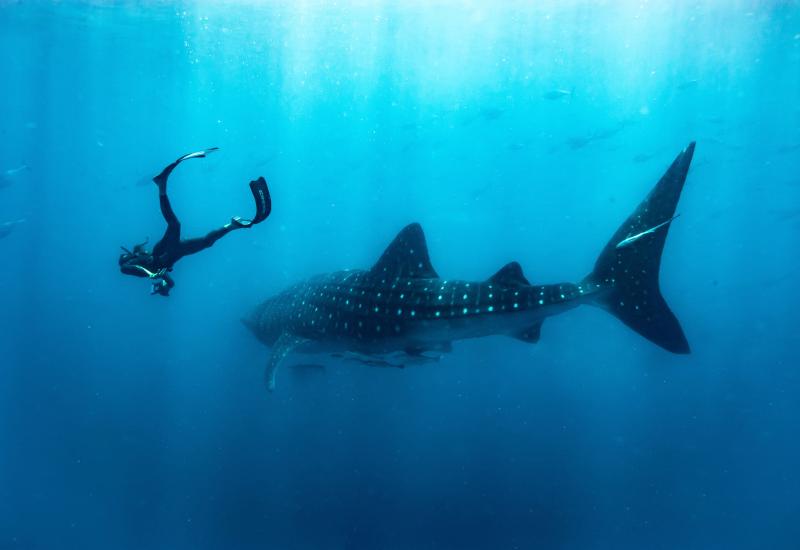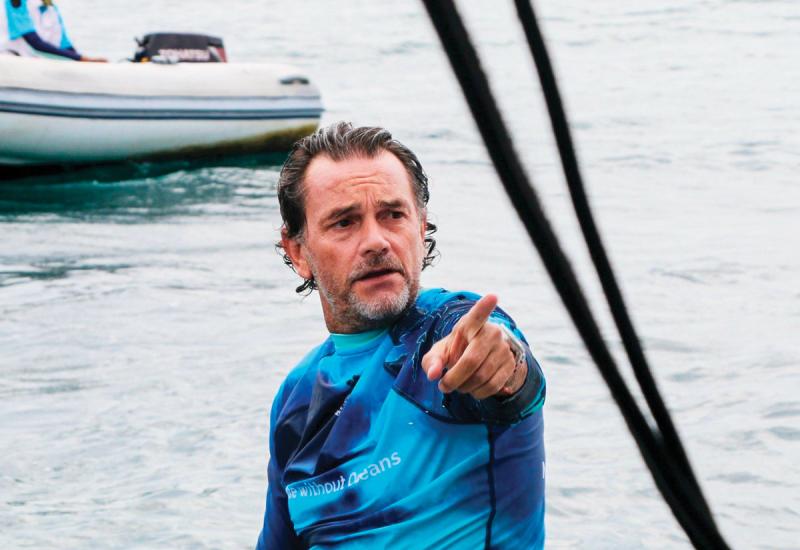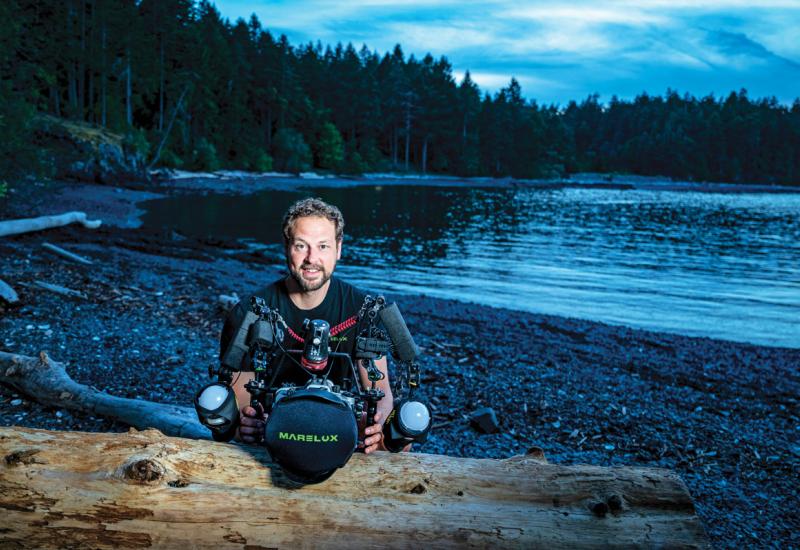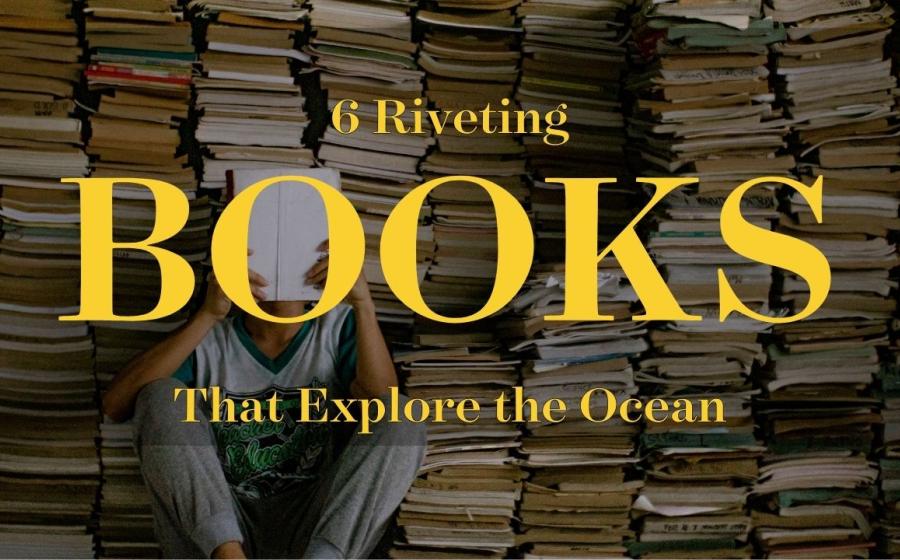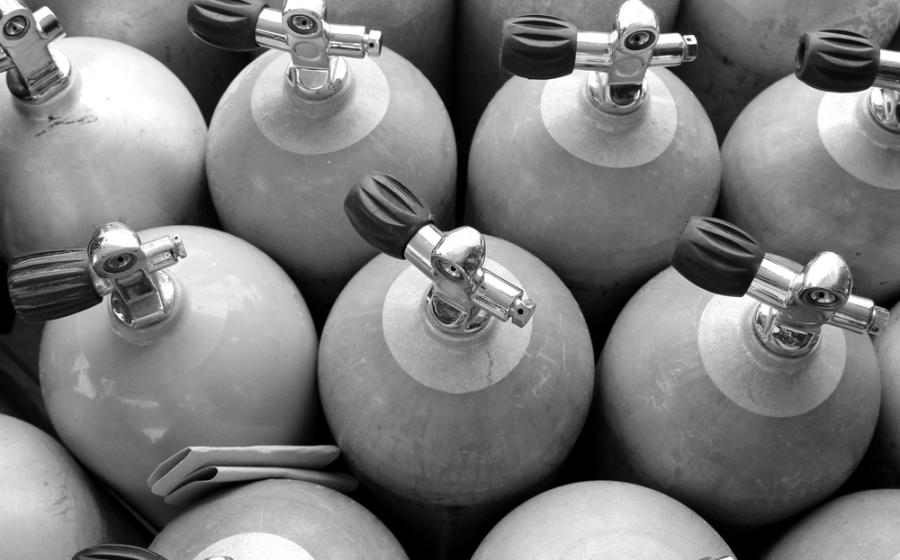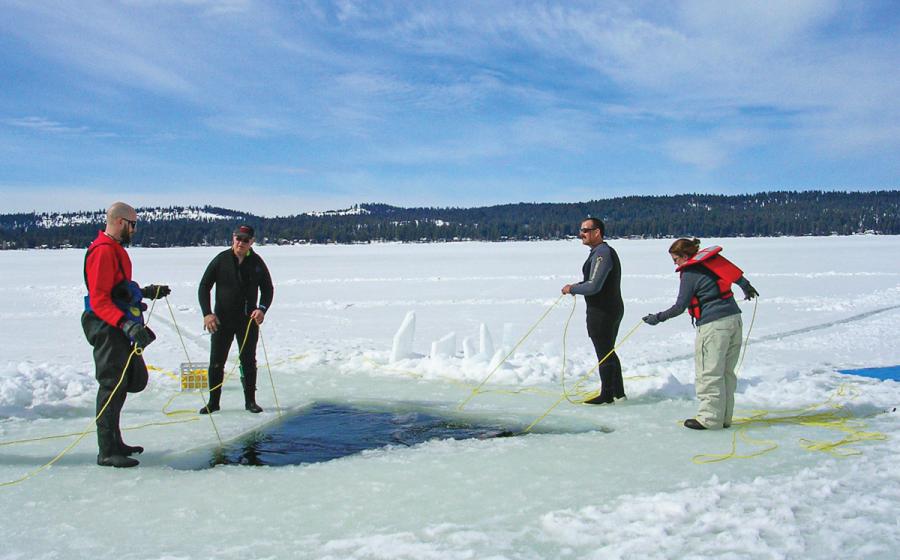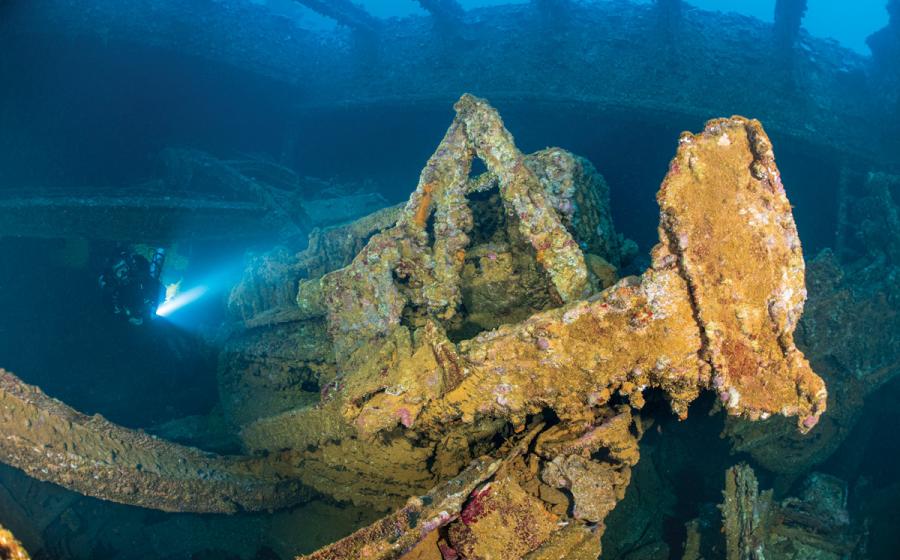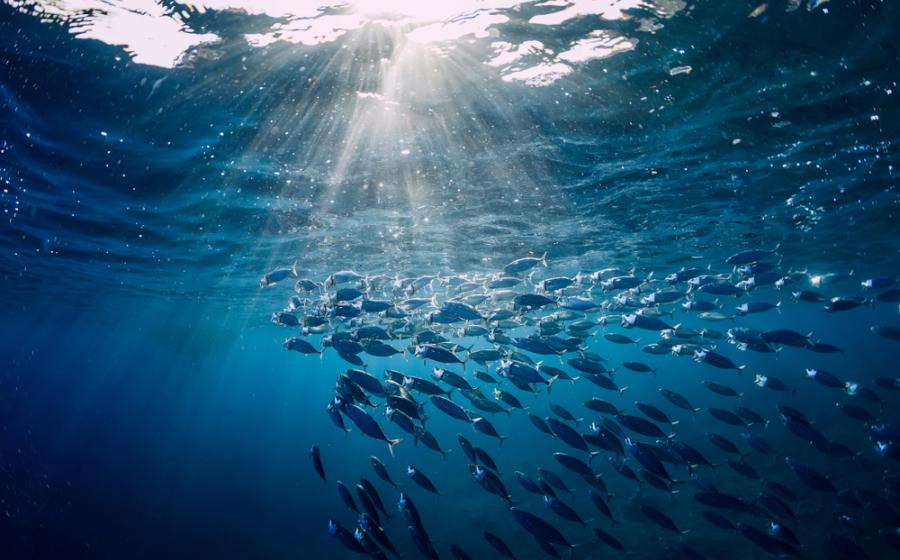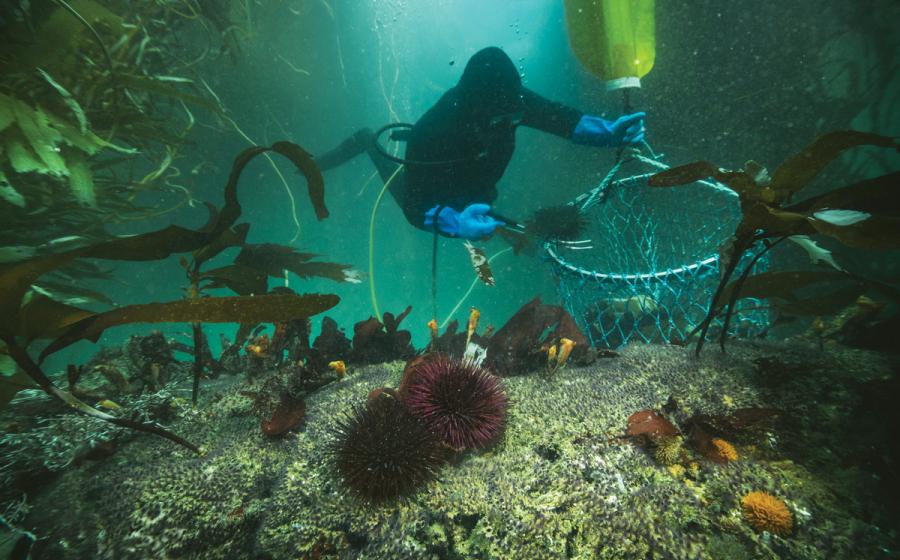Tiffany Newman Named July Sea Hero
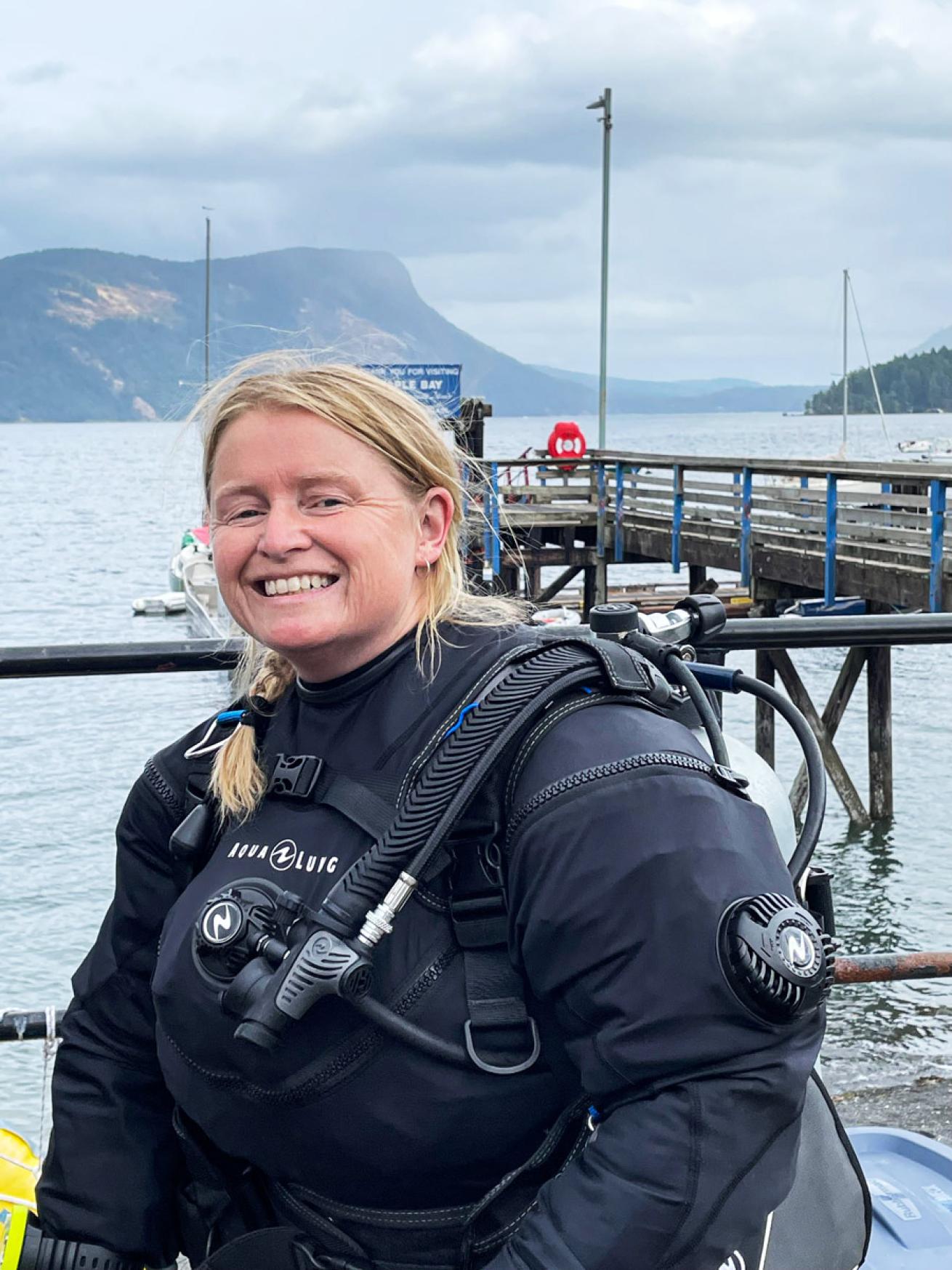
INTO THE OCEAN SOCIETYA portrait of Tiffany Newman
YEAR DIVE CERTIFIED: 2021
AGE WHEN CERTIFIED: 42
DIVE CERTIFICATION LEVEL: Rescue Diver and Divemaster Candidate
WORDS TO LIVE BY: “We rise by lifting others.” — Robert Ingersoll
WEBSITE: intotheocean.ca
FACEBOOK: @ito.scuba
INSTAGRAM: @itosociety
Tiffany Newman learned to dive in the wake of a personal tragedy. The loss of her father and his wish to be laid to rest as part of an artificial reef was the catalyst for her certification. What she didn’t expect was the sense of peace she felt underwater and the yearning to keep diving and share this feeling with others. Driven by a desire to contribute to her community on Vancouver Island, she established Into the Ocean Society. ITO provides opportunities and mentorship for the youth of Vancouver Island — many ITO divers once considered at-risk are now certified and considering careers in the dive industry. The Newmans have not only provided an opportunity to learn to dive but a close-knit community post-certification. ITO participants are involved in monthly cleanups, recycling projects and fundraising. For her philanthropy and mentorship, Tiffany Newman is our July Sea Hero.
Q: What inspired you to establish ITO?
A: My dad was to be laid to rest as part of a man-made artificial reef, and I wanted to be there when he was lowered to his final resting place. We learned to dive for this reason. When we started our open-water course, there were many signs indicating this was something we were going to continue. The feeling I had while diving was hard to put into words, and the peace that I experienced affected me profoundly. I could feel the trajectory I was on changing. During this time, there were many tragedies unfolding in the world around us. My husband and I wanted to make a difference for young people amid all these hardships; for our own kids, for the kids in our community and maybe one day, for kids all over. Diving was changing our lives, and we knew it could change other people’s lives as well.
Q: How do you connect with the at-risk youth you certify and support?
A: We have made many connections through various social media platforms. We have had parents and other family members reach out to us. We have also approached local foster parenting groups, outreach programs, Vancouver Island Indigenous communities and community youth service groups. Through interviews, meetings and a selection committee, we offer a Discover Scuba Diving experience to as many of the youth who apply as possible. If they are comfortable in the water and enjoy the discover diving experience, they are invited to become a PADI-certified ITO Diver.
Related Reading: Peru's Most Important Artificial Reef Is Threatened to Be Destroyed
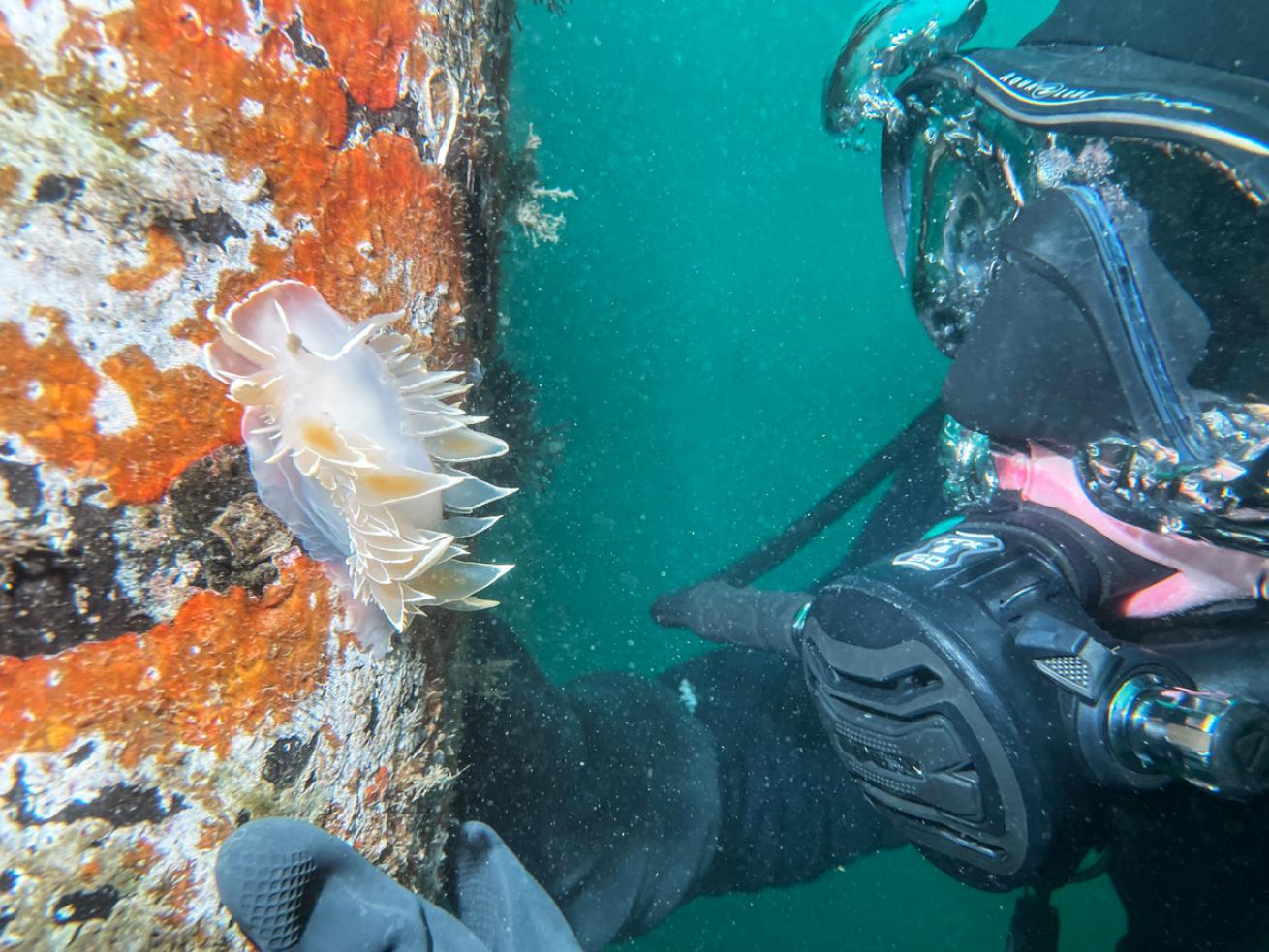
COURTESY INTO THE OCEAN SOCIETYAn Into the Ocean diver marvels at a nudibranch in Maple Bay, Vancouver Island.
Q: What are you doing as an organization to involve your newly certified divers and help keep them on the right track?
A: An important aspect of Into the Ocean is keeping our divers engaged. After their initial certification, we offer them opportunities to keep diving and grow. We try to get all our divers in the water at least once a month and out to local events and presentations. We encourage them to help with community events and fundraisers. We also offer them the opportunity to advance their certification through hard work. We teach kids to dive but also to become stewards of the sport and our local waterways. The work these kids put into their own development is truly inspiring.
Q: You have pledged to study the physiological effects of scuba diving. What do you plan to do with your findings?
A: I really want to be able to use that information to help as many young people as possible. I’d like to teach these kids to manage and adapt to the body’s need for certain chemical releases. I’d like to learn about the physiological reactions of the body when diving and see if this can be used to help combat various anxiety, behavioral, psychological and substance abuse issues. I have seen changes in some of the kids who have worked with us. I have seen some of these kids open doors for themselves, both in scuba and in life. I want to be able to explain these changes scientifically and promote scuba diving to expand our reach to even more young people.
Related Reading: ASK DAN: How Can I Minimize My Decompression Stress?
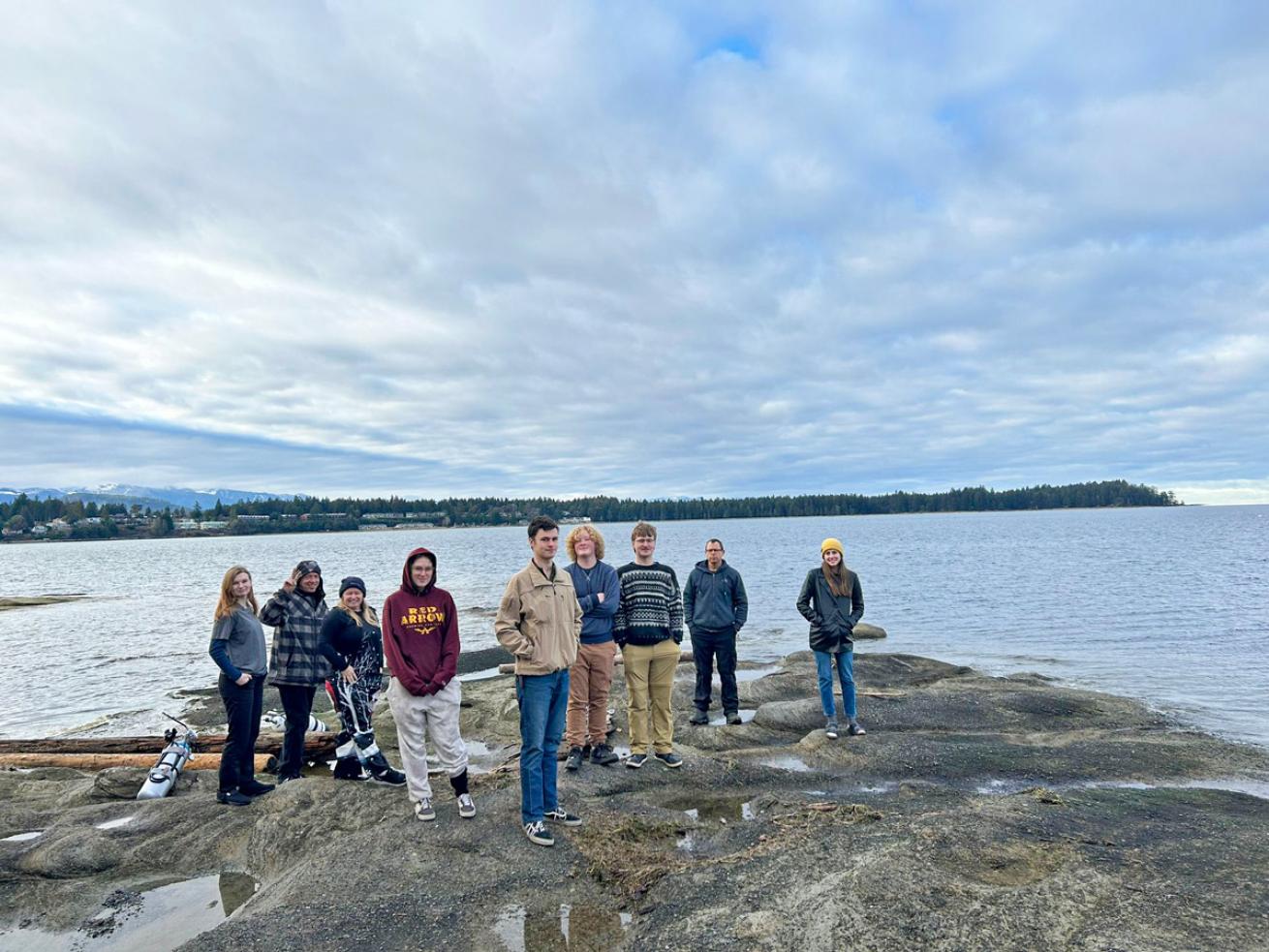
COURTESY INTO THE OCEAN SOCIETYA group of Into the Ocean Society divers at Madrona Point in Nanoose, British Columbia. ITO helps local youths become certified divers as well as stewards of the sport and the marine environment.
Q: What do you view as the greatest challenges in marine conservation?
A: One of the biggest challenges I see is people don’t have a personal relationship with the ocean, and therefore don’t know the positive impact they could have on it. There is a misconception that to make a difference you must be a scientist, have lots of money or be able to advance some incredible type of technology. I truly believe if more people had a personal relationship with the ocean, lakes and rivers, they would make small personal changes in the way they interact with those systems. Many small changes can easily equal and surpass a few big changes.
“Everybody can be great because anybody can serve. You don’t need a college degree to serve… You only need a heart full of grace. A soul generated by love.” —Martin Luther King Jr.
Q: Your most satisfying moment?
A: My most satisfying moments are experiencing “firsts” with the kids we work with. The first time they see a new sea creature, the first time they see a wreck materialize out of the depths, or the first time a sea lion swoops by. They see it, look at me, look back, then look at me again with the biggest smiling eyes you have ever seen. Most of the time, those big eyes are paired with muffled squeals and fingers pointing me toward whatever it is I just showed them. You can feel their excitement. That moment never gets old.
Q: What's been your most surprising moment?
A: I don’t think I can pinpoint one moment. I started this program to create opportunities for youth in my region. I wasn’t prepared for how many opportunities would present themselves to me personally. Through this work, I have met people that were so inspiring and supportive of the work I am doing. Our group has had the opportunity to sit down with and even dive with some world-class divers. Of course, that is just as exciting for me as it is for the ITO kids. There have been many other opportunities afforded to me as well, such as this opportunity to serve as July’s Sea Hero. I’ve put a lot of time towards Into The Ocean Society. There is a quote by Winston Churchill that comes to mind, “We make a living by what we get, but we make a life by what we give.” Although the work I do doesn’t make me a living, the life and the fulfillment I have experienced have been priceless.
Q: Who are your "sea heroes"?
A: My “sea heroes” include my diving instructors Tim and Becky Butt. They continue to teach, mentor, and inspire me. I consider myself very lucky to have been paired up with two instructors that truly enjoy what they do, and who gladly offer their time after the courses are over to continue mentoring and helping divers to develop their skills. They continue to work with me, as well as mentoring and working with the ITO divers. Jill Heinerth is a Sea Hero. Both officially and personally. She has inspired the explorer inside me and keeps me dreaming about all the possibilities that are out there for the ITO kids and for myself. My biggest Sea Heroes are the ITO kids. The cold Canadian waters off Vancouver Island can be challenging for a new diver. These kids work so hard honing their skills and becoming great divers. Their dedication and drive to go further pushes me to do the same. I am incredibly proud of all the ITO divers. Not only are they my sea heroes, but I know that in the future, people are going to know about these kids, and they will be Sea Heroes to many.
Related Reading: Conservationist Douglas Woodring Named June Sea Hero
Q: Is there anything we did not ask that you would like readers to know? Tell us what's important to you!
A: Into The Ocean Society is an ever-growing and expanding team of young divers. These kids are the future of the diving industry. They are the future stewards of our waterways and our future explorers. The things that they are doing now are already making an impact in our community. I’d like to continue to offer these kids as many pathways leading to the ocean as I can.
Each Sea Hero featured in Scuba Diving receives a Seiko SRPD43 watch valued at $525. For our December issue, judges select a Sea Hero of the Year, who receives a $5,000 cash award from Seiko to further their work. Nominate a sea hero at scubadiving.com/seaheroes.

__edit8f67.jpg)
